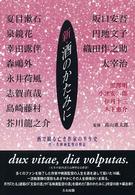- ホーム
- > 洋書
- > 英文書
- > History / World
Full Description
Seeking to challenge the focus on 'big data' by understanding it outside of the computational power required to process it, this volume explores the role of digital methods in the future of digital humanities research. The essays are united by the theme of complexity - but manifest that complexity across an unusual spectrum. The methods included rise out of fields of study including library and information science, informatics, literary studies, English, and computer science. Sources explored include traditional national archives, international web archives, medieval musical scores, digitised books, early modern network ontologies and educational data/learning analytics. These essays discuss the practical implications of web scraping, the implications of creating new scholarly objects, the importance of documentation and the intricacies of applying topic modelling and linked open data methods. Together, the volume suggests that the humanities comfort with multiplicities, contingency, and uncertainty in sources may lend itself to resisting the reductionism that makes technical projects easier to manage, flattening messy, human data into neat binaries. These essays remind us that their results must be contextualised through scholars' knowledge of the sources and the methods by which they came to be constructed not just as 'big data' datasets.
Contents
Editors' Note
Notes on Contributors
The Future of Digital Methods for Complex Datasets: An IntroductionJennifer Guiliano and Mia Ridge
Mindset and Guidelines: Insights to Enhance Collaborative, Campus-wide, Cross-sectoral Digital Humanities InitiativesChad Gaffield
Towards Interoperable Network Ontologies for the Digital HumanitiesAlison Langmead, Jessica M. Otis, Christopher N. Warren,Scott B. Weingart, and Lisa D. Zilinksi
Medieval Music in Linked Open Data: A Case Study on Linking Medieval MotetsTamsyn Rose-Steel and Ece Turnator
Modeling the Humanities: Data Lessons from the World of EducationArmanda Lewis
Semi-supervised Textual Analysis and Historical Research Helping Each Other: Some Thoughts and ObservationsFederico Nanni, Hiram Kümper, and Simone Paolo Ponzetto
Lost in the Infinite Archive: The Promise and Pitfalls of Web ArchivesIan Milligan
The World Wide Web as Complex Data Set: Expanding the Digital Humanities into the Twentieth Century and Beyond through Internet ResearchMichael L. Black
Mechanized Margin to Digitized Center: Black Feminism's Contributions to Combatting Erasure within the Digital HumanitiesNicole M. Brown, Ruby Mendenhall, Michael L. Black, Mark Van Moer, Assata Zerai, and Karen Flynn







